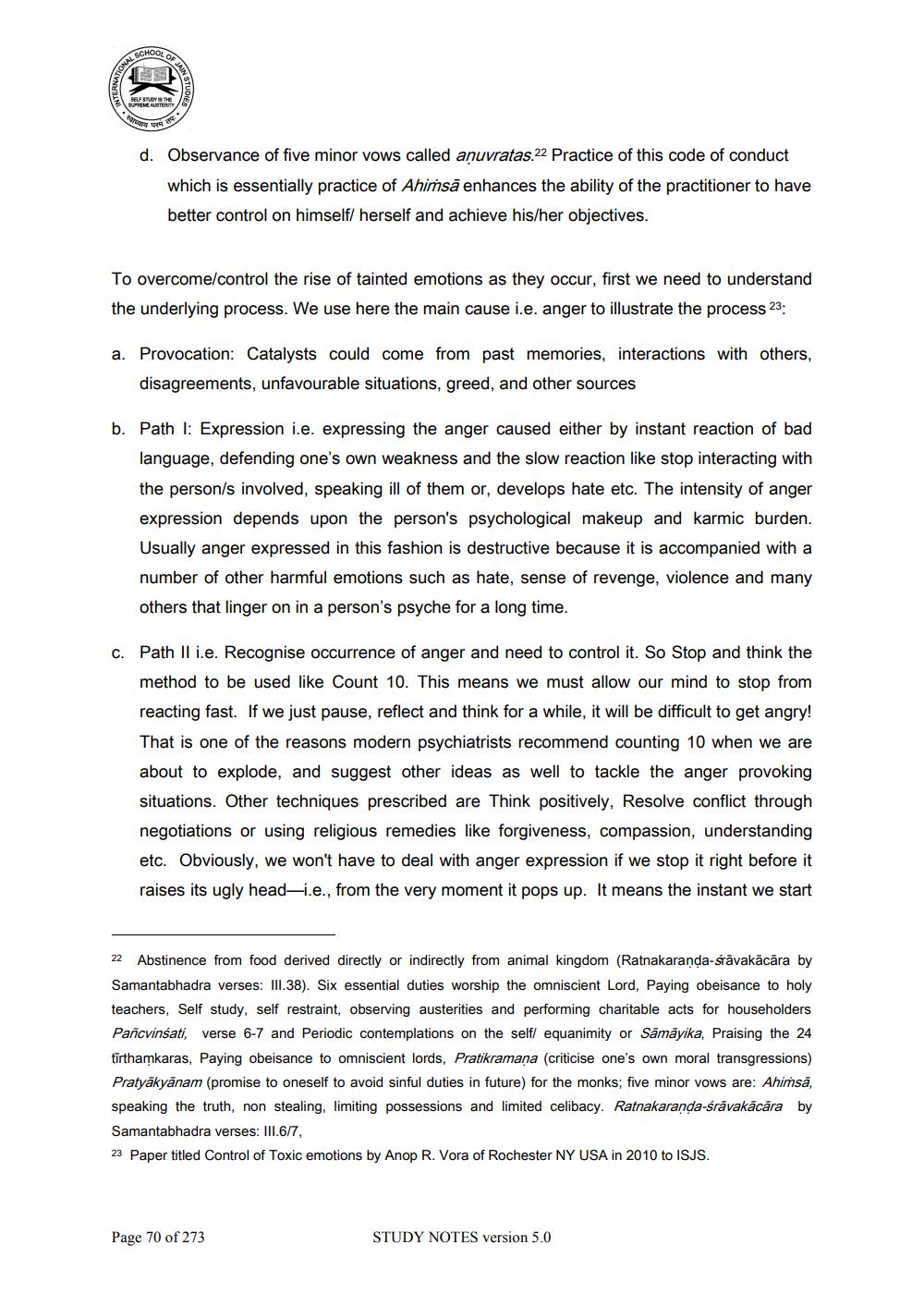________________
d. Observance of five minor vows called anuvratas.22 Practice of this code of conduct
which is essentially practice of Ahiṁsā enhances the ability of the practitioner to have better control on himself/ herself and achieve his/her objectives.
To overcome/control the rise of tainted emotions as they occur, first we need to understand the underlying process. We use here the main cause i.e. anger to illustrate the process 23:
a. Provocation: Catalysts could come from past memories, interactions with others,
disagreements, unfavourable situations, greed, and other sources
b. Path l: Expression i.e. expressing the anger caused either by instant reaction of bad
language, defending one's own weakness and the slow reaction like stop interacting with the person/s involved, speaking ill of them or, develops hate etc. The intensity of anger expression depends upon the person's psychological makeup and karmic burden. Usually anger expressed in this fashion is destructive because it is accompanied with a number of other harmful emotions such as hate, sense of revenge, violence and many others that linger on in a person's psyche for a long time.
c. Path II i.e. Recognise occurrence of anger and need to control it. So Stop and think the
method to be used like Count 10. This means we must allow our mind to stop from reacting fast. If we just pause, reflect and think for a while, it will be difficult to get angry! That is one of the reasons modern psychiatrists recommend counting 10 when we are about to explode, and suggest other ideas as well to tackle the anger provoking situations. Other techniques prescribed are Think positively, Resolve conflict through negotiations or using religious remedies like forgiveness, compassion, understanding etc. Obviously, we won't have to deal with anger expression if we stop it right before it raises its ugly head i.e., from the very moment it pops up. It means the instant we start
22 Abstinence from food derived directly or indirectly from animal kingdom (Ratnakaranda-srāvakācāra by Samantabhadra verses: III.38). Six essential duties worship the omniscient Lord, Paying obeisance to holy teachers, Self study, self restraint, observing austerities and performing charitable acts for householders Pañcvinsati, verse 6-7 and Periodic contemplations on the selfl equanimity or Sāmāyika, Praising the 24 tīrthamkaras, Paying obeisance to omniscient lords, Pratikramana (criticise one's own moral transgressions) Pratyakyānam (promise to oneself to avoid sinful duties in future) for the monks; five minor vows are: Ahimsa, speaking the truth, non stealing, limiting possessions and limited celibacy. Ratnakaranda-śrāvakācāra by Samantabhadra verses: III.6/7, 23 Paper titled Control of Toxic emotions by Anop R. Vora of Rochester NY USA in 2010 to ISJS.
Page 70 of 273
STUDY NOTES version 5.0




